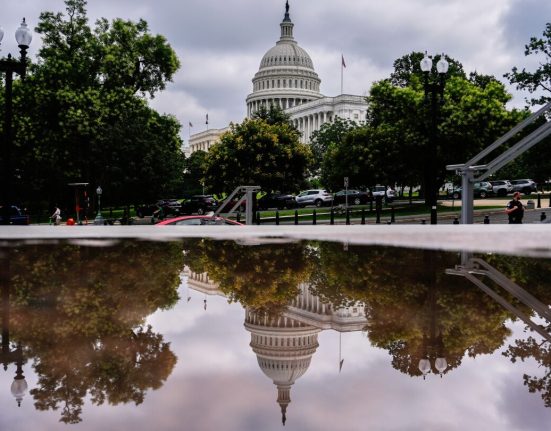As Congress debates how to regulate digital assets, some lawmakers are calling for new ethics rules that would bar the president from issuing or owning digital assets, such as cryptocurrency.
While this might sound like a sensible safeguard, singling out crypto for special scrutiny would be misguided. It’s inconsistent with how other financial assets are treated, unlikely to solve the real problems, and raises serious constitutional concerns.
Let’s start with the basics: the president, like members of Congress, must already file annual public financial disclosures under the Ethics in Government Act. These forms cover all assets—stocks, bonds, real estate, and yes, crypto. If the concern is corruption or financial self-dealing, Congress should work to strengthen and enforce these rules across the board. Banning one asset class while ignoring others only creates loopholes, not solutions.
So why single out crypto? The president isn’t banned from owning shares in oil companies while setting energy policy, or owning real estate while shaping tax policy. Targeting crypto just because it’s new or politically charged is more about optics than ethics. If the goal is to prevent self-enrichment, it makes little sense to restrict crypto holdings while allowing broad discretion over other financial assets that can just as easily create conflicts of interest.
More importantly, a crypto-only ban wouldn’t solve the broader issue: the president is not currently subject to key federal conflict-of-interest laws, including 18 U.S.C. § 208. Congress has long avoided applying these rules to the president due to the Constitution’s separation of powers. Subjecting the chief executive to criminal liability for participating in policy decisions that might indirectly affect personal finances could constrain the ability to govern. Enforcement would also be practically impossible—unlike other officials, the president can only be removed by impeachment.

Romain Costaseca / Hans Lucas via AFP/Getty Images
This brings us to the heart of the constitutional issue. A crypto-specific ethics statute that targets only the president would likely face judicial scrutiny. The Justice Department’s Office of Legal Counsel, under Democratic and Republican administrations alike, has repeatedly warned against applying conflict statutes to the president, citing both constitutional concerns and the lack of an enforcement mechanism. A narrowly drawn law that singles out digital assets while leaving other assets untouched could be seen as both underinclusive and politically motivated—raising equal protection concerns as well.
Beyond the legal flaws, these proposals risk sending the wrong message about crypto itself. By treating digital assets as uniquely corrupting, Congress fuels the perception that they are inherently suspicious or illegitimate. That’s simply not true. Over 50 million Americans hold digital assets. Stablecoins are already powering billions of dollars in payments and settlements every day. U.S. leadership in this space matters—not just for economic competitiveness, but for technological freedom and financial inclusion.
Regulating crypto thoughtfully is important. But ethics rules should be principled, not reactive. If Congress wants to guard against presidential conflicts, it should do so comprehensively. That could mean requiring all future presidents to use blind trusts, divest from business holdings, or comply with a modernized version of § 208. But these reforms should apply across all assets—not just crypto.
Crypto is not the only financial asset that presents ethical risks, nor is it uniquely vulnerable to abuse. The same concerns apply to stocks, real estate, and private businesses. Good policy treats like cases alike. A targeted ban on one asset class only opens the door to more confusion, weaker enforcement, and future exceptions.
Presidential ethics are too important to be addressed piecemeal. Crypto deserves smart, even-handed regulation—not scapegoating. And the presidency deserves conflict-of-interest rules that are serious, constitutional, and consistent—not politically motivated initiatives aimed at one emerging technology.
Tim Ryan is a senior advisor at the Progressive Policy institute.
Kendrick Meek served as the U.S. representative for Florida’s 17th congressional district from 2003 to 2011.
The views expressed in this article are the writers’ own.







